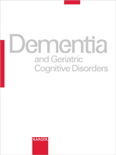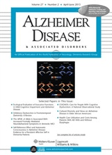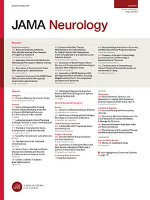
Alzheimers & Dementia-Translational Research & Clinical Interventions
Scope & Guideline
Advancing Knowledge, Improving Lives in Dementia Care
Introduction
Aims and Scopes
- Clinical Applications of Biomarkers:
The journal emphasizes research on biomarkers that can aid in the diagnosis and monitoring of Alzheimer's disease. This includes studies on cerebrospinal fluid (CSF) biomarkers, plasma markers, and neuroimaging techniques to track disease progression. - Pharmacological Interventions:
A significant focus is on the development and evaluation of pharmacological treatments, including anti-amyloid therapies and other disease-modifying agents. This encompasses clinical trials and their design, efficacy, and safety. - Social and Behavioral Aspects of Dementia Care:
Research related to the psychosocial aspects of dementia care, including caregiver support, patient-centered care strategies, and the impact of social connections on health outcomes is a core area of interest. - Health Disparities and Inclusion:
The journal addresses issues of diversity and inclusion in Alzheimer's research, emphasizing the importance of studying underrepresented populations and understanding how social determinants affect health outcomes. - Innovative Methodologies:
The journal promotes the use of novel methods in Alzheimer's research, including machine learning, digital health technologies, and community-based participatory research approaches.
Trending and Emerging
- Diversity and Inclusion in Research:
There is an increasing emphasis on the importance of diversity in research populations, addressing health disparities, and ensuring that findings are applicable across different racial, ethnic, and socio-economic groups. - Digital Health Interventions:
The trend towards digital health solutions, including telehealth, mobile health applications, and online cognitive training programs, is gaining traction as a means to enhance patient engagement and accessibility. - Personalized Medicine Approaches:
Research that aims to tailor interventions based on individual genetic, biomarker, and lifestyle profiles is on the rise, highlighting a shift towards personalized treatment strategies for Alzheimer's disease. - Holistic and Multidimensional Care Models:
There is a growing focus on holistic care models that integrate physical, mental, and social health, recognizing the multifaceted nature of dementia and its impact on overall well-being. - Community-Based Participatory Research:
Increasingly, research methodologies that involve community engagement and collaboration with stakeholders are emerging, reflecting a commitment to addressing real-world challenges faced by individuals with dementia and their caregivers.
Declining or Waning
- Traditional Neuropsychological Assessments:
There appears to be a waning focus on traditional neuropsychological assessments as primary outcomes in Alzheimer's studies, with a shift towards more dynamic and holistic measures of cognition and functionality. - Single-Domain Interventions:
Research concentrating solely on single-domain interventions, such as cognitive training or pharmacological treatments without integrated approaches, is decreasing as multidisciplinary strategies become more favored. - Cultural Competency Training:
While once a focal point, specific studies on cultural competency training for dementia care providers are becoming less frequent, possibly as the field moves towards broader systemic changes rather than isolated training programs. - Basic Mechanistic Studies:
Research centered exclusively on basic mechanistic studies without translational implications is declining, as there is a stronger emphasis on studies that can directly inform clinical practice and patient outcomes. - Epidemiological Studies on Non-Dementia Populations:
There is a noticeable reduction in studies focusing on the epidemiology of cognitive decline in non-dementia populations, as the journal pivots towards more targeted research on individuals diagnosed with Alzheimer's disease.
Similar Journals

DEMENTIA AND GERIATRIC COGNITIVE DISORDERS
Innovating solutions for cognitive decline in the elderly.DEMENTIA AND GERIATRIC COGNITIVE DISORDERS is a distinguished peer-reviewed journal published by KARGER, based in Switzerland. With a focus on the critical fields of cognitive neuroscience, geriatrics, and psychiatry, this journal is integral to advancing our understanding of cognitive decline and geriatric health. Despite being established from 1990 through 1992 and relaunching its scope in 1994, it has consistently provided a platform for innovative research, as reflected in its strong impact factor and notable Scopus rankings, placing it in the Q2 quartile for disciplines including cognitive neuroscience and geriatric medicine. The journal aims to foster interdisciplinary dialogue and collaboration among researchers, healthcare professionals, and educators, contributing to the growing field of dementia research and elderly care. Open access options further ensure that this vital knowledge is widely accessible, making a significant impact in both academic and clinical settings. With a commitment to quality and relevance, DEMENTIA AND GERIATRIC COGNITIVE DISORDERS remains a key resource for those dedicated to understanding and addressing the challenges posed by cognitive disorders in aging populations.

Journal of Gerontological Nursing
Championing Quality of Life for SeniorsThe Journal of Gerontological Nursing, published by SLACK INC, is a leading peer-reviewed journal dedicated to advancing the field of gerontological nursing through innovative research, clinical practice, and educational advancements. Since its inception in 1975, this journal has become a crucial resource for researchers, healthcare professionals, and students interested in the care and management of older adults. With an impact factor that reflects its significance within the disciplines of gerontology and nursing (Category Quartiles: Q3 in Gerontology and Q3 in Nursing), it serves as a platform for disseminating vital findings, best practices, and evidence-based approaches aimed at improving the quality of life for the aging population. While the journal maintains a print-only format, its content is invaluable for those looking to stay ahead in the rapidly evolving landscape of gerontological care. As it continues to publish until 2024, the Journal of Gerontological Nursing invites contributions that foster dialogue and innovation within this essential area of healthcare.

JOURNAL OF ALZHEIMERS DISEASE
Exploring the complexities of cognitive decline.Journal of Alzheimer's Disease, published by IOS Press, stands as a pivotal resource in the fight against Alzheimer's and related neurodegenerative disorders. With an ISSN of 1387-2877 and an E-ISSN of 1875-8908, this esteemed journal has evolved since its inception in 1998, providing a vital platform for academic research and clinical practice in the realms of Clinical Psychology, Geriatrics and Gerontology, Neuroscience, and Psychiatry and Mental Health. Ranked in the Q1 category across several disciplines, including Clinical Psychology and Geriatrics, this journal not only highlights significant advancements in understanding Alzheimer's disease but also fosters interdisciplinary dialogue among researchers, healthcare professionals, and policymakers. Boasting robust Scopus rankings—such as 49th in Clinical Psychology and 29th in Geriatrics—this journal is committed to disseminating high-quality research that informs both therapeutic strategies and public health initiatives. The Journal of Alzheimer's Disease is an essential resource for anyone dedicated to exploring the complexities of cognitive decline and enhancing care for affected individuals.

ANNALS OF THE RHEUMATIC DISEASES
Transforming Understanding through Rigorous ResearchANNALS OF THE RHEUMATIC DISEASES, published by BMJ Publishing Group, stands as a leading academic journal in the realm of rheumatology and related fields, including biochemistry, immunology, and genetics. With an esteemed impact factor and a consistent ranking in the upper echelons of its category (Q1) as per the latest evaluations, this journal represents the forefront of research and innovation, fostering scientific advancement from 1945 to the present. As the top journal in the Medicine - Rheumatology category and achieving remarkable percentiles in various interdisciplinary categories, it serves as a critical platform for researchers, clinicians, and students dedicated to understanding and addressing rheumatic diseases. Although it does not currently offer open access, its rigorous peer-review process ensures the dissemination of high-quality research findings that are paramount in enhancing clinical practices and advancing scientific discourse. Readers can expect to be challenged and inspired by the breadth of studies and reviews that address the complexities of rheumatology and its intersecting scientific domains.

Journal of Alzheimers Disease Reports
Unlocking the Science of Cognitive DisordersJournal of Alzheimer's Disease Reports, published by IOS PRESS, is an essential open-access platform dedicated to advancing research in the fields of clinical psychology, geriatrics, gerontology, neuroscience, and psychiatry. Since its inception in 2017, this journal has rapidly gained recognition, achieving a commendable status reflected in its 2023 category quartiles, notably ranking Q2 in Clinical Psychology and Psychiatry and Mental Health. With a sustained commitment to disseminating high-quality research and facilitating collaboration among scientists, the journal offers insights into the critical aspects of Alzheimer's disease and related cognitive disorders. Given its positions in the Scopus ranks, it serves as a crucial resource for academics and practitioners alike, empowering them to contribute effectively to the ongoing discourse in cognitive health. The journal embraces open access, ensuring that all research findings are freely available to the global community, thereby enhancing visibility and engagement. With a focus on fostering innovation and knowledge transfer, Journal of Alzheimer's Disease Reports is poised to make an enduring impact in the field of dementia research.

BMC Geriatrics
Advancing knowledge for a healthier aging population.BMC Geriatrics is a leading open-access journal dedicated to advancing the field of geriatrics and gerontology. Published by BMC, this esteemed journal has been at the forefront of research since its inception in 2001, providing a vital platform for sharing innovative studies and insights that address the complexities of aging. With an impressive Q1 ranking in the 2023 category of Geriatrics and Gerontology and a solid Scopus ranking at #40 out of 116, BMC Geriatrics showcases high-impact research that influences clinical practices and policy-making. As a fully open-access publication, it ensures that groundbreaking research is freely available to researchers, practitioners, and students alike, promoting the diffusion of knowledge across the global healthcare community. This journal is crucial for anyone interested in the latest developments in elderly care, health issues affecting aging populations, and innovative interventions designed to improve quality of life among older adults.

ALZHEIMER DISEASE & ASSOCIATED DISORDERS
Unveiling insights into Alzheimer’s and associated disorders.ALZHEIMER DISEASE & ASSOCIATED DISORDERS, published by Lippincott Williams & Wilkins, is a pivotal journal for advancing knowledge in the fields of clinical psychology, geriatric medicine, and psychiatry. With a history spanning from 1987 to 2024, this journal provides a comprehensive platform for researchers and clinicians to disseminate significant findings related to Alzheimer's disease and associated cognitive disorders. Ranked within the second and third quartiles in various categories, including clinical psychology and geriatrics, it retains a solid academic reputation, indicated by its diverse Scopus rankings, such as #137 in Clinical Psychology and #20 in Nursing & Gerontology. Although it does not offer open access, the journal is recognized for its commitment to peer-reviewed research, making it a valuable resource for professionals and students alike, aiming to stay abreast of the latest developments and evidence-based practices in Alzheimer’s and associated conditions.

JAMA Psychiatry
Transforming Mental Health Knowledge into PracticeJAMA Psychiatry, published by the American Medical Association, stands as a leading peer-reviewed journal in the fields of psychiatry and mental health, featuring an impressive impact factor that reflects its significance in advancing research and clinical practice. With an ISSN of 2168-622X and an E-ISSN of 2168-6238, this journal operates on a comprehensive access model that allows for the dissemination of vital research findings to a global audience. Since its inception in 2013, JAMA Psychiatry has consistently ranked in the top quartile (Q1) in both the Medicine (miscellaneous) and Psychiatry and Mental Health categories, with a remarkable Scopus rank of #4 out of 567, placing it in the 99th percentile. Addressed from its headquarters in Chicago, Illinois, the journal's objectives encompass the publication of original clinical research, innovative treatment strategies, and insightful reviews that enrich the understanding of psychiatric disorders. By bridging the gap between research and real-world application, JAMA Psychiatry remains an essential resource for researchers, clinicians, and students dedicated to improving mental health outcomes.

JAMA Neurology
Empowering Clinicians with Cutting-Edge Neurological KnowledgeJAMA Neurology is a leading peer-reviewed journal published by the American Medical Association, focused on advancing the understanding and treatment of neurological disorders. With an impressive impact factor and ranked in the 99th percentile among clinical neurology journals, this publication is recognized as Q1 in its category for 2023, highlighting its significance in the field. Since its inception, the journal has provided a platform for high-quality research, clinical trials, and reviews that inform both clinicians and researchers. Operating from its headquarters in Chicago, Illinois, JAMA Neurology offers rich insights into the latest advancements in neurology, featuring articles that span a wide range of topics including neurodegenerative diseases, stroke, epilepsy, and neurocritical care. Researchers and professionals are encouraged to access the journal’s content freely, as it employs open access options to promote the dissemination of critical knowledge. As a critical resource in the field of neurology, JAMA Neurology is essential for anyone involved in this dynamic and rapidly evolving specialty.

Translational Pediatrics
Empowering Pediatric Care with Groundbreaking Science.Translational Pediatrics is a leading journal in the field of Pediatrics, specializing in bridging the gap between laboratory research and clinical practice. Published by AME Publishing Company in Hong Kong, this journal aims to promote the translation of scientific discoveries into innovative interventions for child health. With its ISSN 2224-4336 and E-ISSN 2224-4344, the journal is accessible to a global audience, enhancing knowledge sharing among researchers, clinicians, and educators. Recognized in 2023 as a Q2 category journal in Pediatrics, Perinatology, and Child Health, it ranks 72nd out of 330 according to Scopus, placing it in the top 22% of its category. With an impactful Convergence of research from 2015 to 2024, Translational Pediatrics is dedicated to providing an essential platform for high-quality studies that advance pediatric care and foster best practices in child health.